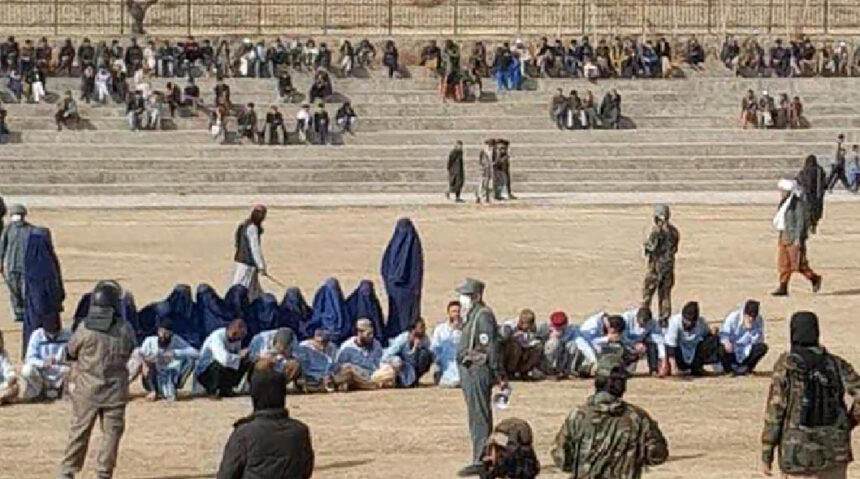RASC News Agency: In the past month, the Taliban have publicly flogged 85 people across Afghanistan, including 12 women. According to statements from the Taliban’s Supreme Court, these punishments were most frequently carried out in Ghazni and Nangarhar provinces. However, religious scholars have voiced serious criticism, calling these actions a form of “summary justice” rather than an application of “Islamic Sharia.”
Since reclaiming power, the Taliban have increasingly returned to practices reminiscent of their rule in the 1990s, including public corporal punishments for alleged crimes. Reports indicate that provinces such as Jowzjan, with 22 cases, and Khost, with 17 cases, have witnessed the highest number of floggings in recent weeks. Nangarhar, Parwan, Paktika, Maidan Wardak, Faryab, Ghazni, and Kabul have also been sites for these public punishments. Those subjected to flogging were accused of offenses including “running away from home, illicit relationships, homosexuality, adultery, immorality, and theft.”
While the Taliban claim that these punishments are based on Islamic Sharia, a prominent religious scholar argues that Islamic law specifies rigorous criteria for implementing “hudud” (prescribed punishments), and that the Taliban’s actions amount to “summary justice.” Religious scholar Mohammad Badakhsh explains, “Hudud laws require both specific and general conditions to be met. Until those conditions are established such as a voluntary confession made without coercion in a legal setting, or the presence of clear evidence as mandated by the Quran the accused should not be punished.”
Amid these developments, Afghanistani citizens have expressed growing concerns, particularly due to the Taliban’s limitations on transparency and the absence of impartial monitoring in their judicial process. A Kabul resident shared his unease, saying, “In a country where women are not even permitted to speak openly among themselves, innocent people may be unfairly judged and punished. The possibility of wrongful flogging is not a minor issue; it is gravely concerning. The international community and human rights organizations must not stay silent.”
Although the Taliban maintain that “prisoners’ rights are respected” and that cases are handled “justly,” human rights advocates have consistently reported that detainees in Taliban custody face torture, and that independent oversight bodies are seldom granted meaningful access to monitor the judiciary.






